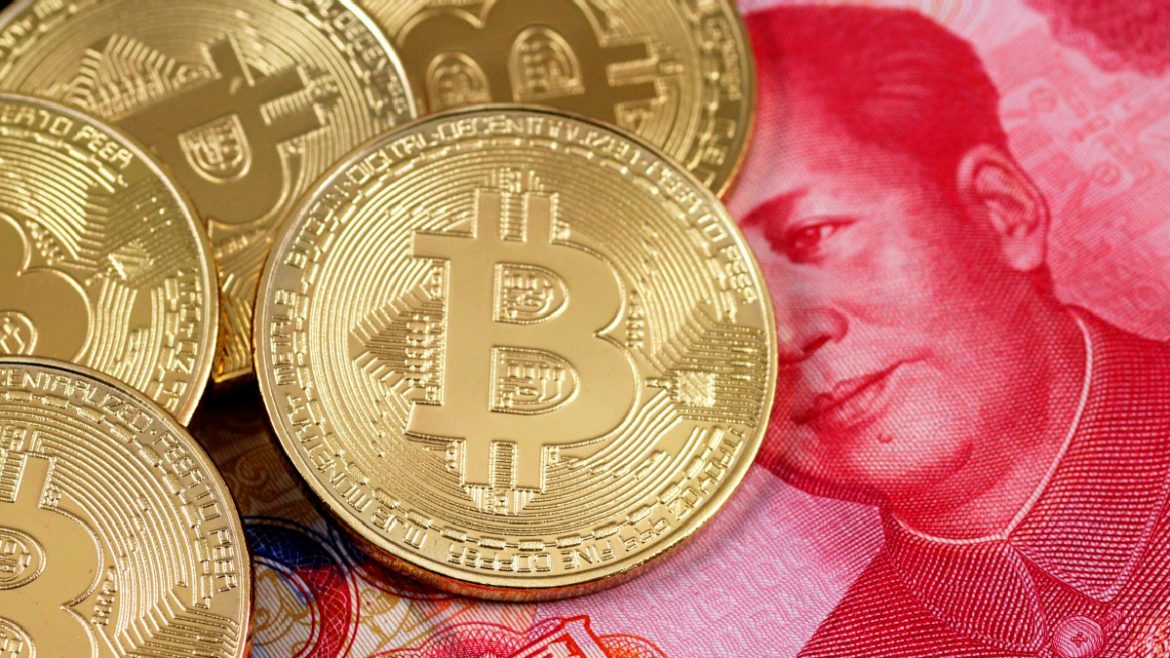It is a well-known fact that China is a major player in setting Bitcoin prices. Bitcoin mining is controlled by China. There are four miners in China that control over 50% in Bitcoin. Prominent figures have increasingly begun referring to Bitcoin as a world currency in the making. For example, Twitter CEO Jack Dorsey says that Bitcoin could become the world’s single global currency in ten years. Apple Inc. co-founder Steve Wozniak echoed Dorsey’s thoughts this month with the caveat that he did not necessarily believe that it would happen. Garlinghouse called the idea of a primary world currency “absurd” and said that it did not make any sense.
[wlm_private “Crypto Trader Pro – Monthly|Crypto Trader Pro – Yearly|Crypto Trader Pro (Lite)”]
China’s Bitcoin Advantage
China has two major advantages related to Bitcoin.
- It is home to a majority of mining operations for Bitcoin. This confers it the power to control the supply of coins in the market and to raise transaction fees based on mining difficulty. As has been the case in the last year, high transaction fees could dissuade use of bitcoin for daily transactions and make it more cost-prohibitive for trading.
- Second, China is also home to some of the biggest cryptocurrency exchanges for trading Bitcoin, such as Binance. These exchanges clock high trading volumes and attract international retail investors due to their cheap fees.
Noted economist John Maynard Keynes proposed the idea for a global currency during the 1944 Bretton Woods conference. A central bank, called the International Clearing Union, would be responsible for issuing Bancor, a global currency that would trade on par with national currencies. The Bancor would be used for trades between nations, thereby removing imbalance in exchange rates and the inherent advantages and disadvantages that are associated with it. In 2018, China banned ICOs (initial coin offerings), but in 2019, the Chinese government directed its state officials to conduct an “orderly removal” of bitcoin miners only to pivot later in the year when their legislators became more crypto friendly.
Does Bitcoin Price Depend on China?
Typical analysis would make it seem that China is weaning its economy off cryptocurrencies. But appearances are not always as they seem. China still exerts a significant influence on cryptocurrency prices. The country has had a complicated relationship with cryptocurrencies.
In 2013, China was among the earliest countries to embrace cryptocurrencies with the mark of one Chinese charity that accepted Bitcoin. That spurred many businesses to follow, which prompted people to set up shop and start mining.
Politics aside, Chinese investors are enamored with cryptocurrencies and their ability to transcend borders. As China’s economic growth engine has slowed, especially with tariffs between the U.S. in their ongoing trade war, the Chinese are looking for investment opportunities as returns on conventional, state-backed investments have dwindled. The government has instituted capital controls to prevent Yuan outflow to allay any subsequent drop in its value. Bitcoin and other cryptocurrencies offer protection against a slowing economy and capital controls at home.
Bitcoin Mining in China
Did you know that approximately two-thirds of all bitcoin mining operations are based in China?
Supply plays a significant role in determining a currency’s price. Within the cryptocurrency ecosystem, China controls the supply for prominent cryptocurrencies through mining operations. For example, Bitmain is responsible for 39% of all mining operations and runs the world’s two largest mining pools. As far as leading in tech, it also pioneered the ASIC chip, which runs most bitcoin mining systems.
Because Bitcoin’s supply is tightly controlled, Bitcoin mining plays an important role in determining the cryptocurrency’s prices. Though there has been much outcry about bitcoin’s energy consumption, Chinese miners are still making a tidy profit due to high prices. It could be argued that this might be the reason why the Chinese government has not set a deadline for removal of Bitcoin miners.
But China’s influence is not just limited to miners. They are spreading their influence to other cryptocurrencies as well. Let’s take Siacoin as an example. The coin actually belongs to Sia, a Boston-based platform that enables content distribution over its network. David Vorick, the CEO and lead developer of Sia expressed concerns about Bitmain’s decision to develop ASIC machines that support the algorithm that runs Sia. The company’s decision is expected to significantly increase supply of Siacoins in the market and centralize mining operations, but at what cost?
In more developments, Halong Mining, another Chinese company, is also competing with Bitmain to develop a machine that supports Siacoin’s algorithm; its net effect being that it may cause the coin’s supply to be more centralized and controlled by a Chinese company.
Obviously, by sheer volume of people in China, they are a major player in the cryptocurrency ecosystem. The country has several levers through which it controls pricing for cryptocurrencies even though it may seem as if it is cracking down on them.
Disclaimer
Content provided by CryptoTraderNews is for informational purposes only, and should not be construed as legal, tax, investment, financial, or other advice. All information is of a general nature. As always, there is risk with any investment. In exchange for using our products and services, you agree not to hold CryptoTraderNews Pro, its affiliates, or any third party service provider liable for any possible claim for damages arising from decisions you make based on information made available to you through our services.
[/wlm_private]
Want to read the rest of the article? Join our pro-membership and receive all of the following:
✅Access to ALL content.
✅Access to the CTN editorial staff.
✅Access to our CTN trading dashboard.
✅Access to our exclusive telegram channel where all our pro-members and editorial staff are in.
✅Ability to request content/research material!
